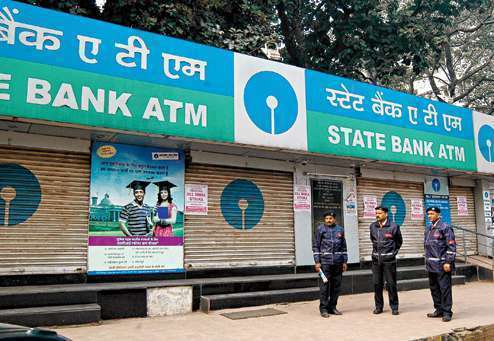New Delhi: Banking operations in the country were hit today as 10 lakh employees, primarily from PSU banks, went on 2-day strike to protest against a “meagre” 2 per cent salary hike offered by Indian Banks Association (IBA) — the management body.
The strike, also supported by employees of some old generation private sector banks and foreign banks, will continue tomorrow.
Operations in the new-generation private banks like ICICI Bank, HDFC Bank, Axis Bank were however almost normal, barring few activities including cheque clearance.
There were reports of disruption in banking operations in various states. The impact of strike in certain states like Kerala, West Bengal, Bihar and Jharkhand was more severe compared to other states.
Nearly 10 lakh employees, working in various branches of 21 public sector banks, 13 old generation private sector banks, six foreign banks and 56 regional rural banks across the country went on the strike as IBA offered them a nominal wage revision, All India Bank Employees Association (AIBEA), affiliate of UFBU said in a statement.
Since the strike coincides with the month-end, salary withdrawals from branches are likely to get affected. Some ATMs went dry by the evening.
Operations like deposits, FD renewals, government treasury operations, money market operations were hit by the strike.
A RBI official said some digital banking work was done through electronic systems like the RTGS but the functioning of banks’ servers was hit.
Digital banking comprises about 5 per cent of the total operations, the official said.
Reserve Bank of India remained operational though the trade unions offered moral support for the ongoing strike, a RBI Trade Union leader said.
As several rounds of talks between banks and the unions of their employees did not make any headway, the United Forum of Banking Unions (UFBU), an umbrella body of nine bank unions, has gone on strike against the proposed wage hike of 2 per cent as against 15 per cent given last time, All India Bank Employees Association (AIBEA), general secretary C H Venkatachalam said.
In the last wage revision in 2012, the bank employees got a raise of 15 per cent.
It is kind of an insult to the employees of public sector banks…to be offered this kind of meagre hike. We had no other option but to go on strike, forgoing two days’ salary, All India Bank Officers’ Confederation (AIBOC) joint general secretary Ravinder Gupta said.
Success of all government schemes like Mudra, Jandhan and demonetisation were ensured by public sector bankers but the reward is just 2 per cent hike, he said, adding that it is gross injustice to bankers who have worked very hard for nation building.
Employees are participating in the nation-wide strike as part of “our democratic right” by forgoing our salary, Venkatachalam said and hoped that good sense would prevail.
IBA has asked the six banks including SBI, Oriental Bank of Commerce, Union Bank and Bank of Baroda to reconsider their decision and allow IBA to settle wages for bank employees up to scale seven instead of up to scale three employees.
There are about 85,000 branches of 21 public sector banks across the country having business share of about 70 per cent.
Most of the banks, including SBI, PNB and BoB, have already informed their customers about functioning of branches and offices due to strike.
Industry chamber Assocham said the two-day nationwide bank strike may affect customer transactions worth up to Rs 20,000 crore.
It also urged the government to come up with a stimulus plan for restoring the health of PSU banks.
State-owned lenders are grappling with high levels of bad loans and as per reports their losses for the quarter ended March 2018 are set to hit a record Rs 50,000 crore which is more than double the losses of Rs 19,000 crore in preceding quarter ended December 2017, Assocham said in a statement.
As an independent media platform, we do not take advertisements from governments and corporate houses. It is you, our readers, who have supported us on our journey to do honest and unbiased journalism. Please contribute, so that we can continue to do the same in future.

